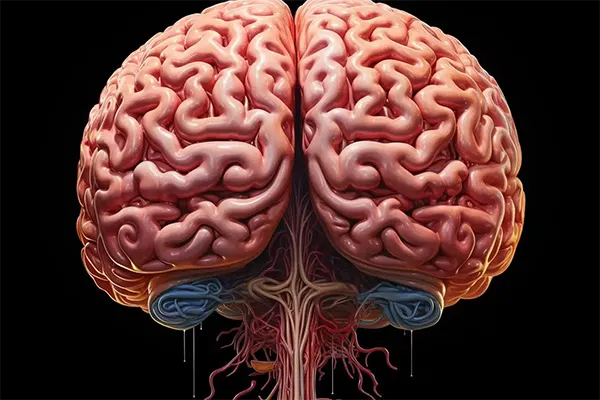Articles & Research

Neuronal Boost: Lactate’s Key Role in Brain Development Uncovered
Summary: Researchers discovered the critical role lactate plays in the development of neural stem cells into specialized neurons. They found that lactate sends signals to these cells, aiding in the modification and strengthening of neuronal functions.
The study uncovers how lactate, an exercise and metabolism byproduct, may play a vital part in brain development and neuronal differentiation. This could lead to potential methods of utilizing lactate signaling to prevent or control cognitive diseases.
Key Facts:
1. Lactate, a byproduct of exercise and metabolism, plays a significant role in brain development and the differentiation of neural stem cells into specialized neurons.
2. The study reveals that lactate sends signals to these cells, modifying and strengthening neuronal functions.
3. These findings could serve as a basis for harnessing lactate signaling for encouraging exercise or designing drugs to prevent or control cognitive diseases.
Source: Tohoku University
Scientists at Tohoku University have discovered the critical role that lactate plays in helping neural stem cells develop into specialized neurons, a process dubbed neuronal differentiation.
They also unearthed a means by which lactate sends signals to the cells, helping modify and strengthen neuronal functions.
Details of their study were reported in the Journal of Biological Chemistry on June 10, 2023.
Lactate is a byproduct of exercise and metabolism. Glucose gets converted into lactate when oxygen supplies to cells are limited, giving the brain a source of energy.
Lactate levels in fetal brains increase from the middle state of gestation, highlighting the significant role it has in brain development and neuronal differentiation.
Recent studies and reports have demonstrated that lactate is a vital component of our nervous system.
They have shown that lactate functions as an important cellular signaling molecule in the nervous system, and that lactate metabolism is involved in neuronal functions, including neuroplasticity and memory consolidation.
However, the role of lactate signaling in neuronal cells has, until now, remained unknown.
“Given the growing evidence that shows lactate providing signal-regulatory functions in various cell types under physiological and pathological conditions, we hypothesized that lactate affects neuronal function through changing comprehensive gene expression,” says Professor Ryoichi Nagatomi from Tohoku University’s Graduate School of Biomedical Engineering and leader of the research team along with PhD student Yidan Xu and Associate Professor Joji Kusuyama from Tokyo Medical and Dental University.
The researchers tested their hypothesis by examining the gene regulation of cells treated with lactate when NDRG3, a protein previously identified to mediate gene regulation when lactate is present, was removed from neuroblastoma cell SH-SY5Y.
They found that lactate helps with neural differentiation through ways that depend on NDRG3 and ways that don’t. Additionally, they identified that two specific transcription factors, TEAD1 and ELF4, are controlled by both lactate and NDRG3 during neuronal differentiation.
Nagatomi and his team believe their findings not only further basic knowledge of lactate, but could serve as a basis for harnessing lactate signaling for encouraging exercise or designing drugs as a way to prevent or control cognitive diseases.
“Our findings provide a novel insight into the mechanisms by which exercise-induced high serum lactate levels may beneficially affect the nervous system.
“Furthermore, since the changes in lactate levels caused by human exercise can be measured, the adaptational changes in the brain function such as cognition and memory function can be better understood when changes in the lactate level is considered.”
Looking ahead, the team plans to further investigate the regulatory function of lactate in neuron and brain development.
About this neurodevelopment research news
Author: Public Relations
Source: Tohoku University
Contact: Public Relations – Tohoku University
Image: The image is credited to Neuroscience News
Original Research: Open access.
“Lactate promotes neuronal differentiation of SH-SY5Y cells by lactate-responsive gene sets through NDRG3-dependent and -independent manners” by Ryoichi Nagatomi et al. Journal of Biological Chemistry
Abstract
Lactate promotes neuronal differentiation of SH-SY5Y cells by lactate-responsive gene sets through NDRG3-dependent and -independent manners
Recent reports show that lactate functions as a signaling molecule to regulate gene expression and protein stability. However, the roles of lactate signaling in neuronal cells remain unknown.
Here, we showed that lactate promotes the all stages of neuronal differentiation of SH-SY5Y and Neuro2A, human and mouse neuroblastoma cell lines, characterized by increased neuronal marker expression and the rates of neurites extension.
Transcriptomics revealed many lactate-responsive genes sets such as SPARCL1 in SH-SY5Y, Neuro2A, and primary embryonic mouse neuronal cells. The effects of lactate on neuronal function were mainly mediated through monocarboxylate transporters 1 (MCT1).
We found that NDRG family member 3 (NDRG3), a lactate-binding protein, was highly expressed and stabilized by lactate treatment during neuronal differentiation. Combinative RNA-seq of SH-SY5Y with lactate treatment and NDRG3 knockdown shows that the promotive effects of lactate on neural differentiation are regulated through NDRG3-dependent and independent manners.
Moreover, we identified TEA domain family member 1 (TEAD1) and ETS-related transcription factor 4 (ELF4) are the specific transcription factors that are regulated by both lactate and NDRG3 in neuronal differentiation. TEAD1 and ELF4 differently affect the expression of neuronal marker genes in SH-SY5Y cells.
These results highlight the biological roles of extracellular and intracellular lactate as a critical signaling molecule that modifies neuronal differentiation.

